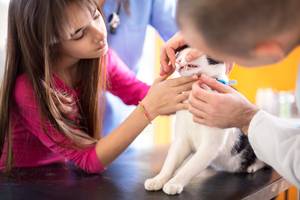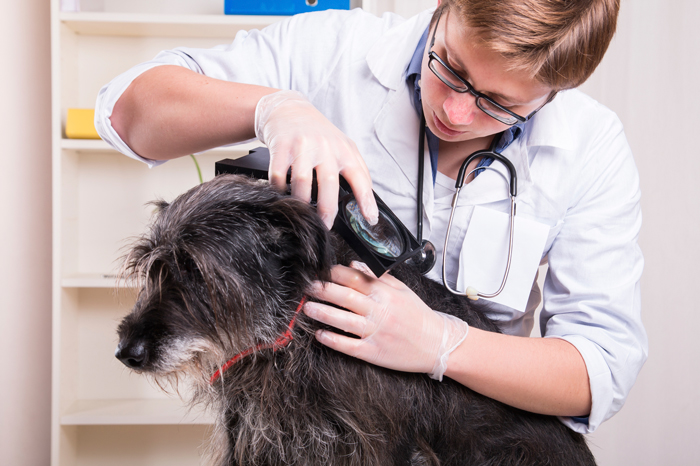A yearly checkup is essential to the health and well-being of your pets.

Almost all pet owners have a good veterinarian they rely on for their dog or cat’s medical concerns: someone to call if the dog eats an entire pot roast or the cat cuts her paw pad. Such a vet probably gave your pet its first shots and performed spay or neuter surgery.
But do you schedule a “well check” visit for your pet every year? Even if your dog or cat does not have an ongoing medical condition and seems perfectly healthy, it is important for the veterinarian to examine your pet regularly.
During a routine visit, a veterinarian typically performs a physical exam in which he or she carefully checks the pet’s body from “nose to tail.” During this exam, the vet will take the pet’s temperature; look closely in the mouth, eyes and ears; and gently feel along the body for signs of any internal issues. He or she might take a blood sample, and if your pet needs them, administer vaccinations.

Such an exam—performed annually—gives the vet a good idea of your pet’s healthy condition. Then, at future visits, any early signs of potential health issues will be easier for your vet to spot. Here are some of the key items your vet will likely appraise at an annual well check:
- Mouth, gums and teeth: The vet looks for signs of gingivitis, periodontal disease and oral cancer. Some of the early symptoms are oral pain, tooth abscesses, tooth loss and infection.
- Eyes and vision: A check here may reveal signs of corneal ulcers, cataracts, dry eyes or glaucoma. Left unchecked, these issues could lead to pain, blindness or even loss of an eye.
- Ears: During an exam, a vet typically checks for evidence of ear mites or infection. Left untreated, these can lead to pain and even hearing loss in your pet.
- Skin: The vet checks your pet’s skin for signs of allergies, fleas, mites, ticks, infection or lumps. Parasites can cause illnesses, and any skin lesions, lumps or hair loss may indicate disease.
- Joints: A gentle manipulation of a pet’s joints can help a vet identify early signs of arthritis, hip dysplasia, degenerative back disease and even cancer. Early detection can help prevent pain, reduced mobility and even paralysis.
Just like with human health, prevention is the key to treating a multitude of conditions that can affect our dogs and cats. By scheduling an annual well check for your cat or dog, you can work with your veterinarian to keep your pet in tip-top shape.
About the author: Stacy N. Hackett is an award-winning writer with more than 25 years’ experience in the pet industry. She is the former editor of Pet Product News International and a former staff editor with Cat Fancy, Cats USA, Critters USA and Ferrets USA. To learn more about her work, visit stacynhackett.vpweb.com.





